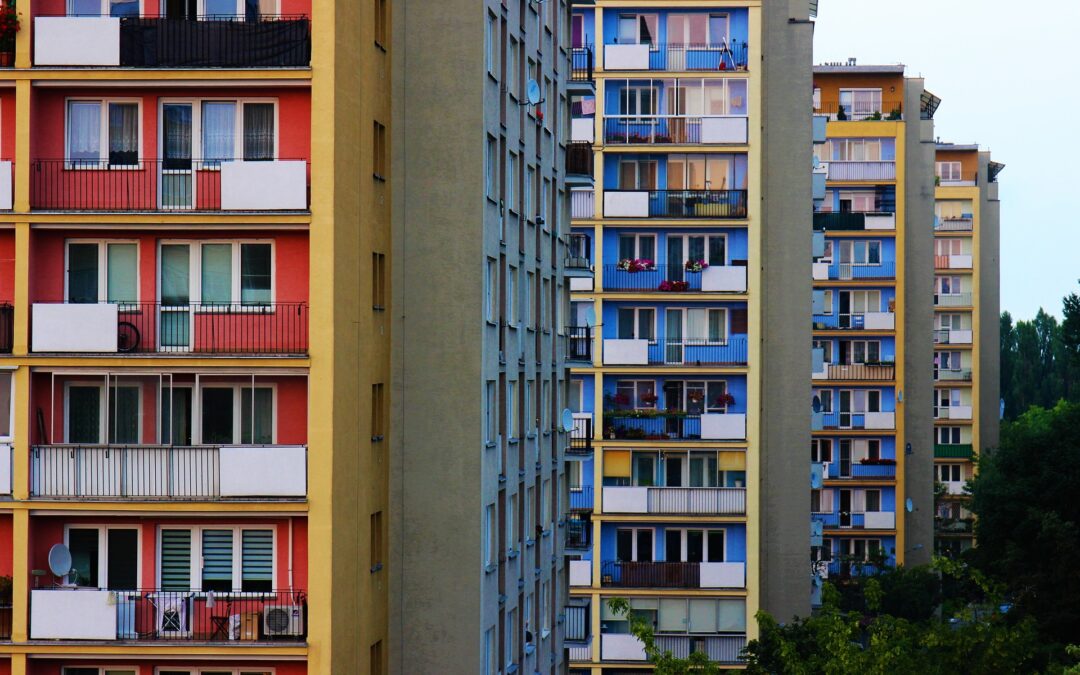House prices in Poland increased at the second fastest rate in Europe last year, according to new Eurostat data. The rise in real estate value, caused across Europe by low interest rates and high inflation, was exacerbated in Poland by house prices catching up with growing salaries.
In the third quarter of 2020, house prices in Poland were 10.9% higher than a year earlier, second only to Luxembourg, where they rose by 13.6%. The average increase across Europe was 5.2%. Real estate became cheaper in just two countries, dropping 1.4% in Cyprus and 0.8% in Ireland.
Source: Eurostat
House prices have increased as real estate has become a more enticing investment in the past year. Interest rates scraping zero has meant cheaper mortgages and more lucrative potential rental prices.
“The average interest rate fell from 4.39% in December 2019 to 2.95% in November 2020. A loan instalment for a 300,000 zloty loan for 25 years fell from 1,649 to 1,415 zloty,” said Jarosław Sadowski, chief analyst at Expander Advisors, a financial broker, quoted in Gazeta Wyborcza.
“Much lower loan instalments have tempted those who have not suffered financially from the pandemic to buy,” he added.
Moreover, amid rising inflation and economic uncertainty, real estate has become a relatively safe way of allocating money. The European Commission’s autumn forecasts predicted Poland to have the bloc’s highest inflation, of 3.6%, in 2020.
According to some experts, Poland’s faster real estate price growth is also driven by the country’s longer-term economic catch-up with western Europe. Most of the price hike over the past year took place before the pandemic brought the economy to a standstill.
“Our apartments hardly became any more expensive over the years, while real estate prices in the West were breaking consecutive records. Just two years before the start of the epidemic we observed price increases in Poland that were higher than the dynamically growing salaries,” Bartosz Turek, chief analyst at HRE Investments, told Gazeta Wyborcza.
“In most European countries, housing prices grew much faster than salaries in recent years. In this respect, the market fundamentals in Poland are therefore much more stable than, for example, in Austria, Germany, the Czech Republic, or Hungary,” Turek added.
How did house prices and rents change in your country since 2010 ❓🤔#StatisticsExplained
➡️ For more information: https://t.co/HYwsMckbbI pic.twitter.com/HWcorkMvpd
— EU_Eurostat (@EU_Eurostat) January 14, 2021
Prices have been growing fastest over the past year in the cities of Lublin (9%), Kraków (8.7%) Łódź, Szczecin (both 7.2%) and Radom (6.8%), according to a report by Expander and Rentier.io, a property valuation website. Of the 15 cities in the study, only one, Katowice, recorded a fall in prices (by 3%).
Warsaw is still the most expensive place to buy property, with one square metre costing an average of 10,866 zloty (€2,400) in November. Poland’s capital is followed by Gdańsk (9,851 zloty), Kraków (9,168 zloty) and Wrocław (8,312 zloty).
Main image credit: yarecki z Pixabay

Maria Wilczek is deputy editor of Notes from Poland. She is a regular writer for The Times, The Economist and Al Jazeera English, and has also featured in Foreign Policy, Politico Europe, The Spectator and Gazeta Wyborcza.




















